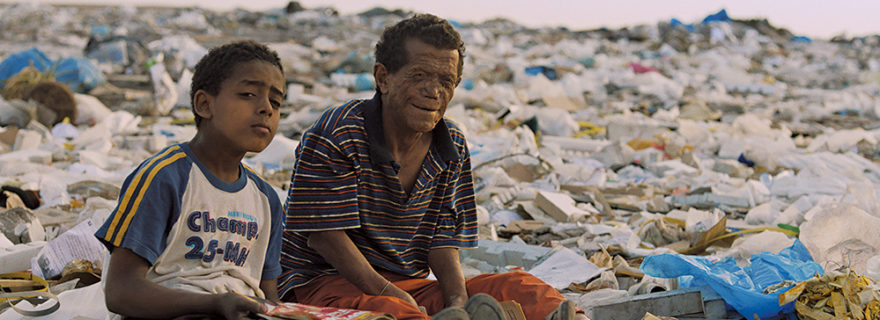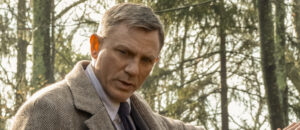'Yomeddine'
Movie Rating:
3
Superficially, ‘Yomeddine’ has the makings of a treacly mess, the kind of forced “feel good” film that uses the backdrop of extreme poverty to tell some life-affirming fable.
‘Yomeddine’ is the story of a man scarred by the ravages of leprosy, a young orphan seeking a father figure, and an irate donkey. On paper, this should be a mawkish schmaltz-fest. However, thanks to some truly compelling performances by Rady Gamal and Ahmed Abdelhafiz, and some fine direction by Egyptian born, New York educated director A.B. Shawky, the film provides far more than one may expect.
The story is simple but effective, a kind of road movie where the two central characters and their beast of burden travel a distance in order to make sense of the past. Along the way, they meet fellow outcasts, get into trouble with authorities, and a slew of other clichéd moments endemic to such storylines.
But there’s real heart here. The performance that Shawky elicits from Rady Gamal is truly extraordinary, finding both dignity and pathos in the way the character is structured and portrayed. Subtle acting choices are on display, as is a feeling that the role reflects many of the feelings and experiences that have shaped the actor’s life. Yet this is no documentary, and it’s clear this is far more than a parlor trick. Gamal is the real deal, a so-called “non-actor” with better chops than many of his peers.
With a simple palette and fairly straightforward narrative drive, it would be easy to dismiss the film, just as it would be easy to underestimate the talent of the performers. For those able to embrace the movie on its own terms, ‘Yomeddine’ offers plenty of reward. The film wears its heart on its sleeve, but when it becomes emotionally rich, it truly moves, drawing viewers into the story of its two characters.
As a reflection on modern Egypt, it also dances around issues of tolerance in all its forms. As such, ‘Yomeddine’ may speak quietly and powerfully to the challenges that the country faces moving forward. Maybe like its main character, it can come to terms with its past, opening to reconciliation and recognizing the other things to hold dear.





